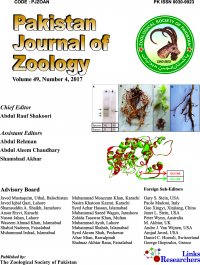1University Diagnostic Laboratory, University of Veterinary and Animal Sciences, Lahore
2Quality Operations Laboratory, University of Veterinary and Animal Sciences, Lahore
3Department of Microbiology, University of Veterinary and Animal Sciences, Lahore
ABSTRACT
Food spoilage is a complex process in which food deteriorates to that extent at which it becomes unfit for human consumption. Food spoilage due to microorganisms is a serious issue which causes approximately 25% food loss globally Present study revealed the effects of storage temperature associated with bacterial spoilage of fish meat. A total 24 samples were procured during three different seasons from local retail shops (n=12) and supermarket (n=12) in order to observe the bacteria which are associated with meat spoilage. Total viable count of aerobic psychrophilic, mesophilic and thermophilic bacteria was performed through selective enrichment and culturing of samples to determine the diversity of bacteria. Staphylococcus aureus (42%), Enterococcus faecium (54%), Salmonella sp. (38%), Bacillus sp. (71%), and Moraxella sp. (63%)were isolated from the samples collected from two different managemental systems. Statistical analysis revealed that temperature and seasonal variations alongside storage conditions affect not only the shelf-life of fish meat but also increase the spoilage microbiota population, hence, altering the quality profile of meat. Therefore, we can conclude that storage temperature is a crucial factor in determining the quality of fish meat.
To share on other social networks, click on any
share button. What are these?









